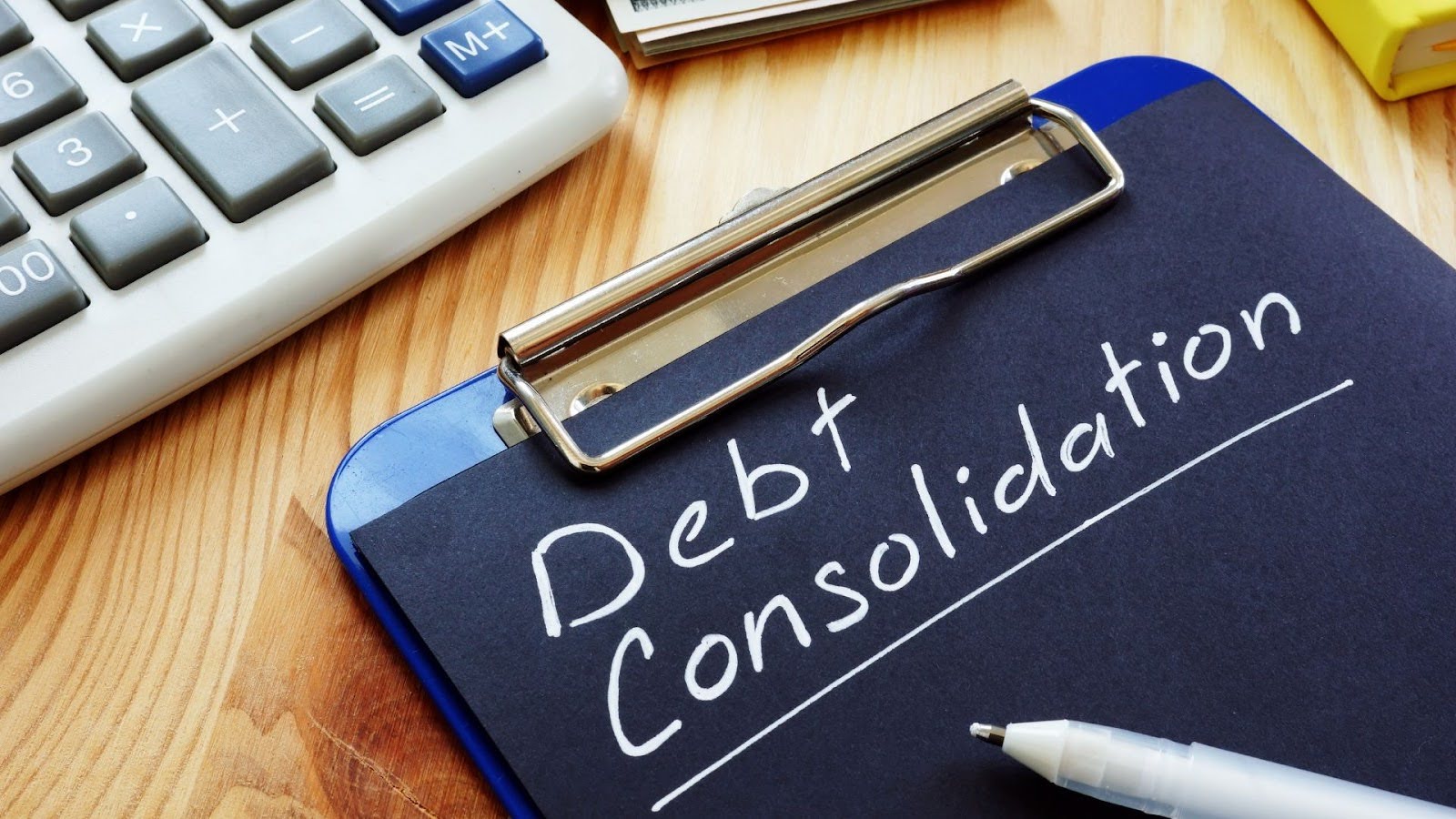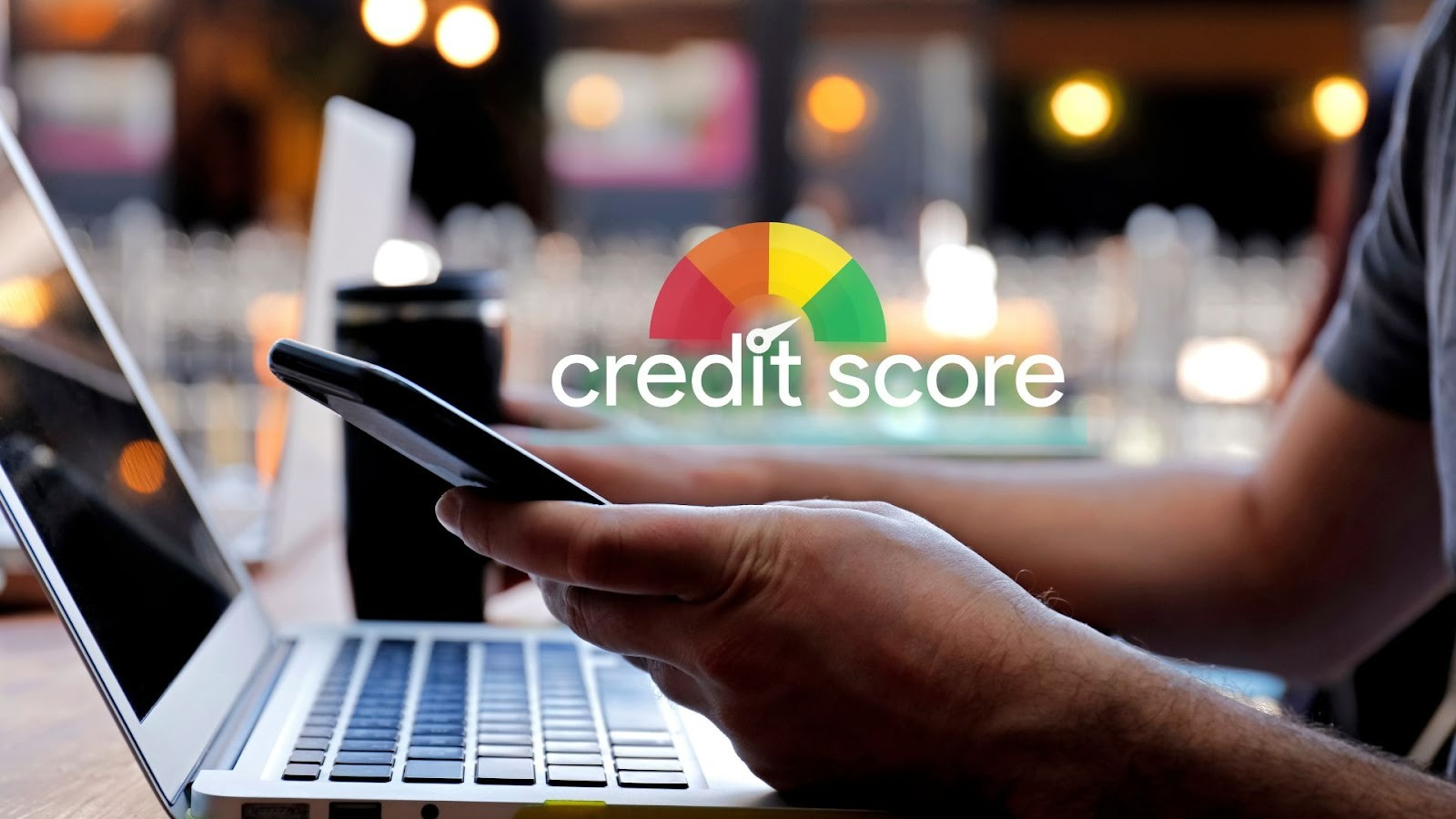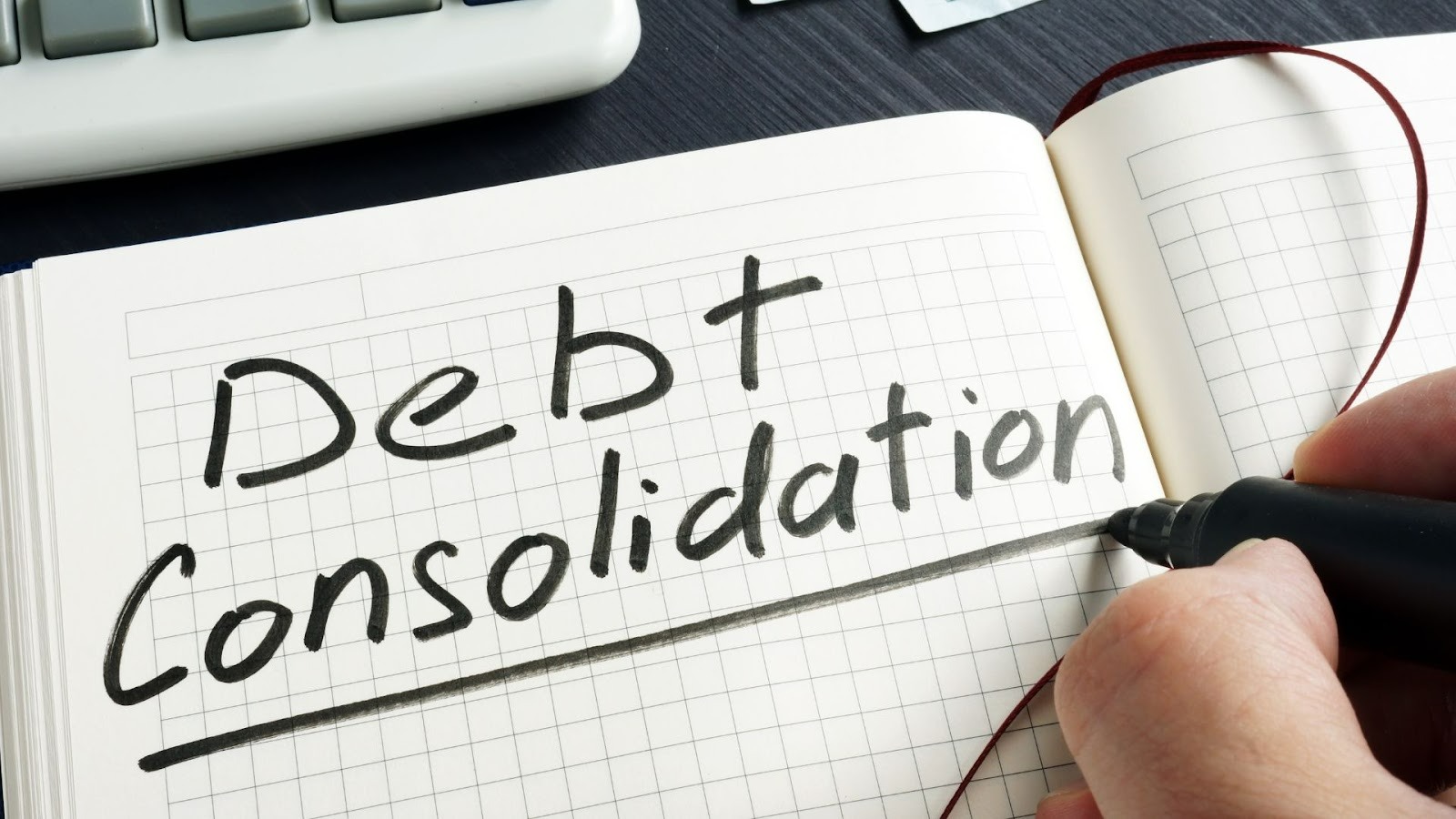How Does Debt Consolidation Affect Your Credit Score?

Transform Your Financial Future
Contact Us“I make my payments every month, but my debt never seems to shrink.”
If that sounds familiar, you’re not alone. Many people find themselves in a constant loop of minimum payments and high interest rates. When balances barely move and due dates keep stacking, it’s natural to look for a better solution.
That’s where debt consolidation often enters the conversation. A 2023 study found that 54% of people consolidated debt to reduce interest rates, while 42% did it to reduce their total debt burden. For many, debt consolidation is a huge relief, but is it the right choice for you? The thing is, while consolidation can be effective, like any financial strategy, it has trade-offs.
This guide will break down the facts and answer the question many are asking: Will debt consolidation help my credit? Learn when it might hurt your score and how to approach it wisely to make informed financial decisions.
Key Highlights:
- Debt consolidation blends multiple debts into a single payment, simplifying finances and reducing stress.
- Different types include personal loans, balance transfer credit cards, home equity loans, and 401(k) loans.
- Responsible consolidation can improve credit by lowering utilization, building payment history, adding credit mix, and ensuring timely payments.
- Poor planning or new debt can temporarily hurt credit and increase financial risk.
- Alternatives like debt management plans, debt payoff strategies, or settlement may be better for some situations.
What Is Debt Consolidation And How Does It Work?
Before asking, “Will debt consolidation help my credit?”, you need a clear picture of what it involves.
Managing multiple debts can feel like juggling too many balls at once. Debt consolidation simplifies this by combining several outstanding debts into a single loan or a balance transfer credit card. This gives you just a single monthly payment to track, reducing stress while improving clarity.
Here is how debt consolidation usually helps:
- One monthly bill: Easier to track compared to handling several different due dates.
- Lower interest rate: A good loan or card may reduce what you pay over time.
- Faster payoff: With reduced interest, more of your money goes toward the balance.
- Less stress: Fewer bills can give you more mental space to focus on recovery.
By combining your payments, you make the repayment process smoother. But not every option works the same way, which brings us to the next part. Before choosing the right method, you need to know the types of debt consolidation available.
Also Read: How To Pay Debt in Credit Collection Services
What Are the Different Types of Debt Consolidation?
The right type of debt consolidation depends on your finances, credit score, and risk tolerance. Each method is built for a different situation, offering unique advantages and considerations. Let’s take a look at these:
1. Debt Consolidation Loan
Personal loans used for consolidation often have lower interest rates than credit cards. These unsecured loans do not need collateral but usually require a good credit score for the best terms.
2. Home Equity Loan or HELOC
Homeowners can choose a home equity loan or line of credit to settle outstanding debt. While interest rates are often low, your home serves as collateral, which carries risk if payments are missed.
3. 401(k) Loan
You may access funds from your retirement account to pay down balances. This option avoids credit checks but is risky since it reduces retirement growth and may trigger taxes if not repaid on time.
4. Balance Transfer Credit Card
These cards offer low or zero introductory interest on transferred balances for a limited period. They can save interest costs and accelerate debt repayment.
You've got the methods down; now let's tackle the big question on your mind about whether it actually boosts your credit or not.
Also Read: Is Paying Debt Collection Agencies a Bad Idea?
Will Debt Consolidation Help My Credit Score?

The answer to the common question “Can a debt consolidation help your credit?” is yes in many situations. But the impact depends on how you manage repayment and your approach to credit afterward. Let’s break it down:
Lowering Your Credit Utilization
When you pay off credit cards using a loan or transfer existing balances to a credit card with a higher limit, your overall credit utilization drops.
- Paying off high-interest credit cards reduces your utilization ratio instantly.
- Try to maintain balances under 30% of your credit limit.
- Lower utilization shows lenders you can manage debt responsibly.
- Over time, this can steadily raise your credit score.
Example: Transferring $5,000 in credit card debt to a personal loan reduces utilization from 80% to 20%, boosting your credit score.
Building A Consistent Payment History
Your payment history is the largest factor in your FICO® Score. Consolidation makes it easier to make on-time payments every month.
- One monthly payment is simpler than multiple bills.
- Paying consistently strengthens your credit profile with lenders.
- Timely payments help improve your score over several months.
- Consistency matters more than the payment amount.
Example: Paying a $500 consolidated loan on time for six months can increase your credit score by several points.
Improving Your Credit Mix
Having a variety of credit types slightly improves your score. Consolidation loans can diversify your accounts and show responsible credit management.
- Adding an installment loan to your credit profile improves your credit mix.
- Balanced credit types show lenders you can handle multiple forms responsibly.
- Credit mix improvement is gradual but impactful over time.
- It can help future borrowing opportunities.
Example: Moving credit card debt into a consolidation loan improves your credit mix, showing you can manage both revolving and installment credit.
Creating Long-Term Financial Stability
Debt consolidation is not just short-term relief. It establishes structure and steady repayment, creating better long-term credit outcomes.
- Lower interest rates free up money to pay the principal faster.
- Regular payments build a reliable credit record.
- Responsible repayment over the years demonstrates strong credit behavior.
- Structured repayment can make future borrowing simpler.
Example: Consolidating $10,000 in debt and repaying over three years shows consistent credit management and strengthens your score.
When handled correctly, debt consolidation can strengthen your credit. But can it also backfire? There are cases where the process may hurt your score, at least temporarily. Let’s see how.
Also Read: Financial Management Tools to Strengthen Debt Collection
Can Debt Consolidation Hurt My Credit Score?
While consolidation can help, it’s not risk-free. Certain actions can temporarily or permanently lower your credit score. Awareness is key to avoiding these pitfalls.
Hard Credit Inquiries
When applying for a consolidation loan or a balance transfer credit card, lenders check your credit, creating a hard inquiry.
- Hard inquiries usually reduce your score by a few points.
- They remain on your credit report for up to 12 months.
- Multiple inquiries in a short time may have a larger effect.
Example: Applying for two personal loans in one month may drop your score by 8–10 points, but timely repayment restores it quickly.
Opening A New Account
Starting a new loan or credit card can lower your accounts’ average age, slightly reducing your credit history length.
- Opening new accounts can lower the average age of all your credit lines.
- Closing old accounts amplifies this effect.
- Longer histories are viewed as more stable by lenders.
Example: Opening a new balance transfer card may reduce your average account age from six to four years, while steady repayment rebuilds your score.
Higher Credit Utilization On A Single Card
Using a balance transfer card for consolidation may increase utilization on that single account.
- High balances on a single card signal a higher risk to credit bureaus.
- Until paid down, your credit score may dip.
- Paying consistently lowers the utilization ratio over time.
Example: Transferring $7,000 onto a card with a $10,000 limit creates 70% utilization. Avoid maxing out the new card to prevent unnecessary drops.
Taking On New Debt
After consolidation, taking additional loans or new credit cards can negate benefits and lower your score.
- Adding new debt increases your overall credit obligations.
- Overspending after consolidation may spike utilization again.
- Responsible management ensures the consolidation effort improves your score.
Example: Paying off $10,000 through a consolidation loan but opening a $5,000 new loan can increase risk. Avoid new credit until existing debt is under control.
So, now you know how debt consolidation affects your score, but what about the full picture? To really answer “will debt consolidation help my credit?”, you need to weigh both the positives and the negatives.
What Are the Positives and Negatives of Debt Consolidation?

Debt consolidation can serve as a useful strategy, but it isn’t perfect for everyone. Understanding both the pros and cons will give you a clearer picture before making a decision.
Knowing the pros and cons helps you see how consolidation aligns with your financial habits and long-term goals.
Also Read: How to Recover from Debt: A Simple, Step-by-Step Guide (2025 Update)
Is It A Good Idea To Consolidate Debt?
Deciding to consolidate debt depends on your financial habits, budget, and available credit offers. If your goal is lower monthly payments and manageable interest, consolidation can make sense. Consider these factors:
- Check your credit score: Strong credit can qualify you for lower interest and better loan terms.
- Compare repayment terms: Look at interest rates, fees, and monthly payment amounts before choosing a lender.
- Fit payments into your budget: Ensure the new monthly payment is affordable and sustainable.
- Consider lender quality: Customer support and service can make the process smoother.
- Mindset and motivation: Consolidation works best if you can stick to a repayment plan and avoid overspending.
Decided it might be a good fit? Great, now you can go ahead with learning how to consolidate the right way.
How Can You Consolidate Debt Without Hurting Your Credit?
Successfully consolidating debt requires a strategy. Following these steps protects your credit while helping you regain control over your finances:
Step 1: Assess All Your Debts
The first step is to know exactly what you owe. List all balances, interest rates, and minimum monthly payments for every account you plan to consolidate.
Next, compare these totals with your monthly budget. This helps you see what you can realistically pay and ensures your consolidation plan is manageable.
Step 2: Explore Your Options
Not all consolidation options are created equal. Research different loans, balance transfer credit cards, and home equity products to see which suits your goals best.
Also, check for preapproved offers when possible. This helps you avoid unnecessary hard credit inquiries while still finding competitive rates and terms.
Step 3: Commit to Your Repayment Plan
Having a repayment plan is only effective if you follow it consistently. Commit to paying at least the minimum due each month, and ideally more when you can.
Monitor your progress regularly and modify your budget as necessary. This keeps you on course and ensures that consolidation improves your credit rather than causing setbacks.
Step 4: Stay Away From New Debt
It’s important to resist taking on new debt while paying off your consolidated loan. This protects your progress and keeps your repayment plan on track.
Keep old credit lines open to maintain credit age and avoid opening new accounts unnecessarily. Focus on using only what you need and sticking to your budget.
If consolidation doesn’t feel right for you, there are a few other options that might suit your needs better.
What Are The Best Alternatives To Debt Consolidation?
If your answer to “Will debt consolidation help my credit?” is no, don’t worry! Debt consolidation isn’t the only solution. Depending on your circumstances, these alternatives can also help manage debt effectively.
Debt Payoff Plans
Debt payoff plans, like the debt snowball or debt avalanche, let you tackle debts strategically by prioritizing balances. This approach can motivate you, accelerate repayment, and give a clear structure for staying on track.
Debt Management Plans (DMP)
A management plan offered by a nonprofit credit counseling agency can reduce interest rates and combine payments. Typically, you close credit card accounts, helping those who cannot qualify for a consolidation loan regain control over debt.
Debt Settlement
Debt settlement involves negotiating with creditors to pay less than you owe. While it may reduce balances, it is risky, can be costly, and can significantly damage your credit if lenders refuse to agree or delay settlement.
Bankruptcy
Bankruptcy provides legal relief from overwhelming debt but has lasting consequences for your credit. It is typically a last resort and requires credit counseling, careful consideration, and understanding of Chapter 7 and Chapter 13 options.
Also Read: How FinTech Is Transforming Debt Collection in 2025
How Forest Hill Helps You Manage Debt Effectively
Managing multiple debts and staying on top of payments can feel overwhelming, even with strategies like consolidation or repayment plans. Without proper guidance, it’s easy to miss deadlines or get stuck in a cycle of stress and uncertainty.
Forest Hill Management helps you regain control of your financial life with personalized debt management solutions. Our team combines expertise, strategy, and technology to guide you toward stability and freedom.
- Tailored Repayment Plans: Custom strategies to reduce debt while keeping payments manageable.
- Expert Negotiation Support: Guidance on fair repayment terms and lender communications.
- Secure Compliance & Technology: Protecting your financial information while maintaining regulatory standards.
With Forest Hill, you gain expert support and a clear path toward debt freedom and long-term financial stability.
Final Thoughts
So, to answer your question, "Will debt consolidation help my credit?", yes, when done responsibly. Combining multiple debts into one manageable payment can simplify your finances, lower interest costs, and support a steady repayment history.
Choosing the right consolidation method and sticking to a disciplined payment plan can change overwhelming debt into a structured path toward financial recovery. Consistently managing payments and understanding your options strengthens your credit and builds long-term financial confidence.
Get control of your debt today. Partner with Forest Hill Management for expert guidance, tailored debt solutions, and ongoing support. Take the first step toward financial freedom and start building a stronger, more stable financial future.
FAQ’s
1. Does debt consolidation improve credit score?
Debt consolidation has the potential to boost your credit score over time if it lowers your credit utilization and ensures consistent, on-time payments. Responsible management of the new consolidated account is key to seeing long-term benefits.
2. What are the negative effects of debt consolidation?
Debt consolidation might temporarily decrease your credit score due to hard inquiries or new accounts. It may also involve fees or risk of overspending if old credit lines remain open.
3. Can I still use my credit card after debt consolidation?
Yes, you can often continue using your credit card, but it’s wise to limit new charges. Avoid adding more debt while paying off the consolidated balance to maintain progress.
4. Can I put all my debt into one payment?
Yes, that’s the main goal of debt consolidation. Combining several debts into a single loan or balance transfer card simplifies payments and can reduce interest costs, making repayment easier to manage.
-p-500%20(1).png)